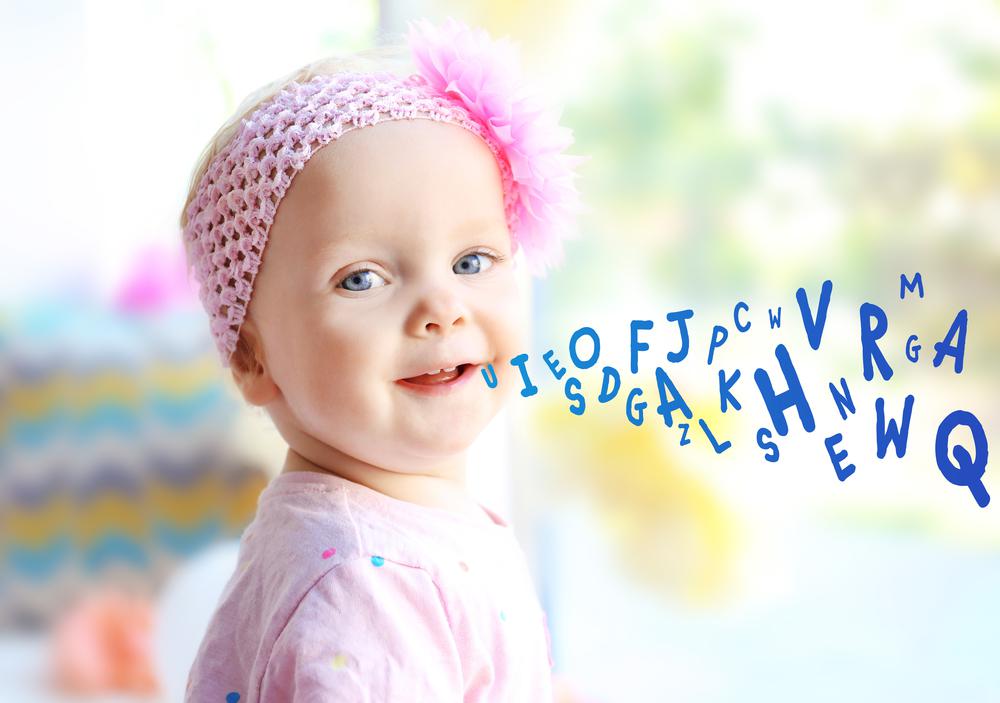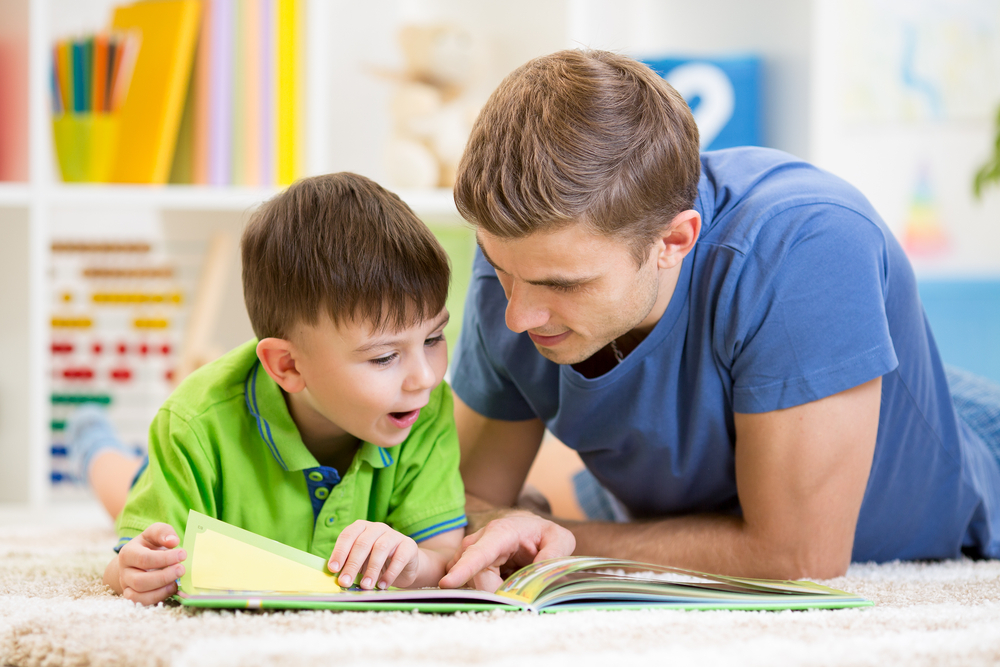Helping Your Child with Speech and Language Development
Sept. 16, 2021
Speech and language are an important part of every child’s development, this is a way to communicate, understand, express, and develop relationships. Speech delay may affect the child’s learning and socialization skills.
Hearing the first word of your child is one of the best moments for parents, teaching them words, following directions, and building sentences can be as exciting too! You may use the following techniques to improve the speech development of toddlers. For parents, one of the main concerns is the child’s development. Often, parents will check and compare their child with the other children to see if their child is developing normally, is delayed, or advance. This is a normal reaction from parents but is not advisable to do. First, they will look at motor skills, the grabbing, lifting head, crawling, walking, and then running and jumping, it will be such joy to see your child’s development before your eyes. However, with speech, it is quite different, not all children developed their speech the same way or at the same time. Before we dive into this, let us first define speech and how it is different from language.
A speech is when the child is verbally expressing, it is how they use sounds and form words, this is the first step of developing language, in which the child is already understanding the use of words and can communicate with other people. We might get confused with the two terms, the simplest way to remember or differentiate is speech is important to develop language.
What Is the Appropriate Age for the Child to Develop Speech and Language?
According to Stanford Children’s Health, this is the milestone for the child’s speech and language development
| Birth to 5 months |
|
| 6 to 11 months |
|
| 12 to 17 months |
|
| 18 to 23 months (about 2 years) |
|
| 2 to 3 years |
|
| 3 to 4 years |
|
| 4 to 5 years |
|
| 5 years |
|
Remember that this is just a guide, as mentioned, every child is different, some may be more advanced than others.
Helping Your Child Develop Their Speech and Language
Helping your child’s speech will differ according to your child’s age and development. If your child is 12 months or 1 year and is not responding, it is important to detect hearing problems, you may check Kids Academy’s article “Detecting Hearing Difficulties in Children and Addressing it at Home” to have more ideas about this area, but if the child’s hearing is perfectly fine then let us proceed with how you can help your child with their speech and language.

For children 0 to 2 years old:
- It is necessary to talk to your child, whether you think they will not response, you may use 2-letter words or CV (consonant-vowel) words like “ma” “da” “pa” etc. Try to get your child to repeat these words.
- Communicate with your child whenever he or she makes sounds, do not just act on it but ask or talk to them, so they will know that language and speech is to be used.
- When doing something, tell your child what you are doing, like clapping hands, instead of just doing it, it is better to say, “clap hands,” this will help them relate the action to the word.
- When playing with your child, identify the objects and use adjectives for colors and shapes, for instance “I have a red car,” or “This ball is circle/round”
- Make animal sounds when introducing different animals
- Play with words with games to develop vocabulary. First Words, is a fun game for your child to learn new words, this can be played in the Kids Academy app!
- Read to your child, this does not only develop speech, but it also strengthens the bond with your little one.
For children 2 to 4 years old:
- Some parents like to talk to their child like a baby, this is okay but what we want is for them to understand and develop good speech. You can still baby talk but let them know the real word, how it is pronounced and used.
- Always speak clearly. Your child will be following how you talk, it is important that you are careful about how you use words and say them.
- If your child pronounced something wrong, let them know that it is okay and help them pronounce it correctly.
- Repeat what your child says, or ask if they said that they want to eat a fruit, ask them what fruit, or make them identify the fruit.
- Play with them by categorizing things, whether it is by color, shape, size, or even the things we use when taking a bath to the things we use in the kitchen. Sorting game can also be found here at Kids Academy!
- Ask questions to your child with a yes or no, and you can also read a book and ask easy questions that you are confident that your child knows. You can ask questions about the Sun or the things in the community.
- Give them questions with choices, example “Do you like to play or to rest?”
- Sing nursery rhymes to them, but also help them understand what the song is about.
- Let them watch educational videos and make sure to explain further, here are some videos that may help with speech development: Alphabet, Sorting by Color and Size, Same and Different, and you can also find plenty of educational videos at Kids Academy.
You may also use massage and finger stimulation to enhance child's speech development.
For children 4 to 6 years old:
- Talk to your child more, let them share and speak.
- Before talking, make sure that your child’s attention is on you.
- Encourage your child to talk more and give praise.
- Explore unfamiliar words with your child, give them words that are synonymous with a word they already know.
- Help them understand when to use certain words like “bath” “cold” “hot.” Some helpful worksheets can also be downloaded at Kids Academy.
- Help your child follow simple directions and ask them to give instructions too
- Play a guessing game! Ask things like “This where we sleep at night”
- Play games with your child and describe what you are playing and ask questions
- Watch videos or movies, ask questions about the movies “What was your favorite part?” “Who was your favorite character?”
- Sound out letters, and help them identify letter sounds in the alphabet
- Play with rhyming words, this is an important part in your child’s development, you may ask them if “Bun” and “Sun” sounds alike. You may also download worksheets at Kids Academy for your child to answer.
- Use words that are usually spoken when doing tasks like “Washing” “Running” “Folding”
Be patient with your child, always remember that your child is in the process of learning, give them time, and encourage them. Also, do not just leave your child watching television, this may help a little bit for speech, but it may do more harm to your child’s development. Encourage your child to always use their words rather than just making gestures.
Speech Delay in Children
A delayed speech is when your child has not met the right milestone, but remember that this does not mean that your child has a disorder like Autism, ADHD (Attention Deficit Hyperactivity Disorder), Learning Disability, etc. Delayed speech is not also a way to test a child’s intelligence, some children with speech delay may even be good with numbers or arts and avoid comparing your child to others child. Moreover, like mentioned before, speech and language are two different things, your child may have a speech delay and may develop and learn the language faster than you think, therefore, it does not mean that your child will also develop language delay. What you can do to prevent language delay is to talk to your child as much as you can and guide them.
How to identify if your child has speech or language disorder
Check the chart provided above and see where your child falls, if your child is behind for just a couple of months, then the best thing to do is to help them develop their speech with tips mentioned in this article because their development may only be late because of certain circumstances like not being able to play as a baby. However, if your child is delayed and is taking longer to learn or develop speech, then it may be a sign of a speech or language disorder, you may check this list to better identify the signs. If you detect that your child may have some of these signs, then it is better to consult and talk to your child’s pediatrician.
Takeaways
Speech delay does not equate to a child’s intelligence, it is best to not compare your child to any other child, each child is different and will develop differently. Always have a conversation with your child, it does not matter whether he or she responds. Play with your child and encourage them to use their words when asking for something. Lastly, do not rush the process, it might take a while for your child to develop speech, and it is okay, progress is still progress. Give your child time to adjust to new learning.
About the author
Jorezza Antonio - Behavioral Therapist.
Metro Manila, National Capital Region, Philippines.
Links and references:
- American Speech-Language-Hearing Association Activities to Encourage Speech and Language Development Retrieved From https://www.asha.org/public/speech/development/Activities-to-Encourage-Speech-and-Language-Development/
- American Speech-Language-Hearing Association Early Identification of Speech, Language, and Hearing Disorders Retrieved from https://www.asha.org/public/early-identification-of-speech-language-and-hearing-disorders/
- Gill, K. (2019) Health Line: Does My Toddler Have a Speech Delay? Retrieved from https://www.healthline.com/health/speech-delay-3-year-old-2
- Our Family World(2017) 7 Fun Activities to Develop Speech & Language to Toddlers Retrieved from https://www.ourfamilyworld.com/family-life/education/fun-toddler-speech-delay-activities/
- Stanford Children’s Health Age-Appropriate Speech and Language Milestone Retrieved from https://www.stanfordchildrens.org/en/topic/default?id=age-appropriate-speech-and-language-milestones-90-P02170












